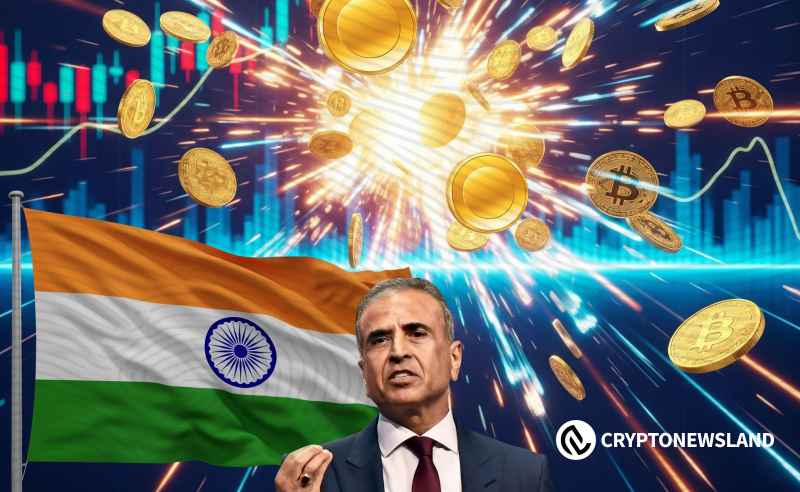
Sunil Mittal urges India to create clear crypto regulations amid rapid global growth.
SEBI confirms crypto regulation decisions rest with India’s central government.
India’s stalled crypto ban risks falling behind countries advancing digital asset policies.
As global cryptocurrency markets are rising, India is under increasing pressure to determine what rules to put in place. Sunil Bharti Mittal, Chairman of Bharti Enterprises and former president of the Confederation of Indian Industry (CII), pointed out that quick regulatory decisions are critical. Mittal said during the CII Annual Business Summit 2025 that India needs to wake up because of the rapid rise of virtual assets globally. Such a call was made after efforts in the legislature slowed, and comments from Indian finance authorities.
Global Crypto Momentum and India’s Position
Mittal pointed to the recent swift growth of cryptocurrencies globally. He urged India to establish a regulatory framework to keep pace with this expanding sector. India’s earlier approach involved skepticism, effectively adopting a “No” stance towards private cryptocurrencies. However, the evolving landscape demands a reassessment to avoid falling behind.
At the same time, Indian authorities face challenges balancing innovation with investor protection. The existing draft bill, introduced in 2021, proposed banning private cryptocurrencies. Lawmakers have since delayed its progress, awaiting better global coordination before moving forward.
SEBI’s Role and Government Responsibility
The Securities and Exchange Board of India (SEBI) clarified that decisions on crypto regulation rest with the central government. SEBI Chairperson Tuhin Kanta Pandey addressed the issue at the ASSOCHAM 16th Capital Market Conference in New Delhi on May 22. He acknowledged the global influence of recent U.S. regulatory moves, such as the approval of spot Bitcoin exchange-traded funds (ETFs).
Pandey stated that regulatory authority on cryptocurrencies lies with the government, not the market regulator. India currently taxes crypto gains at 30%, alongside a 1% tax deducted at source on every transaction. These measures highlight the government's existing control over crypto-related financial activities.
Legislative Challenges and the Path Forward
India’s proposed ban on private cryptocurrencies has been held back this year because there is no global agreement on the issue. Taking steps in crypto regulation alone seems to make lawmakers uncomfortable. If the regulatory lag continues, India might fall behind nations that are already developing ways to include virtual assets in their financial networks.
Mittal’s comments point out the great need for the government to act. He noted that changes in the financial ecosystem are happening quickly, so India’s regulations should follow suit. It is a major worry for policy leaders that their countries are not keeping up to date with the latest fintech developments.
India keeps a close eye on what is happening around the world. Approving Bitcoin ETFs may indicate that regulations for cryptocurrencies are about to change around the world. Regulators and lawmakers in India are now being urged to put in place new policies for digital assets.
The relationship between leaders of industry and regulators is moving toward an eventual clear outcome. Even so, the target date has not been decided because India is working on innovation, safety, and fitting with international partners. With the global crypto environment changing, clear teamwork is necessary, and India’s government is vital for guiding the future of virtual assets.

